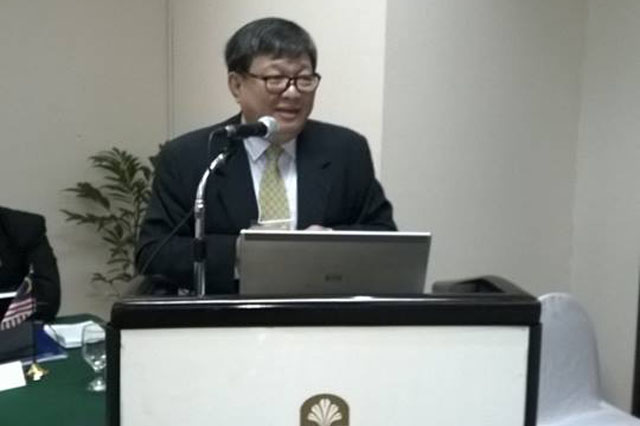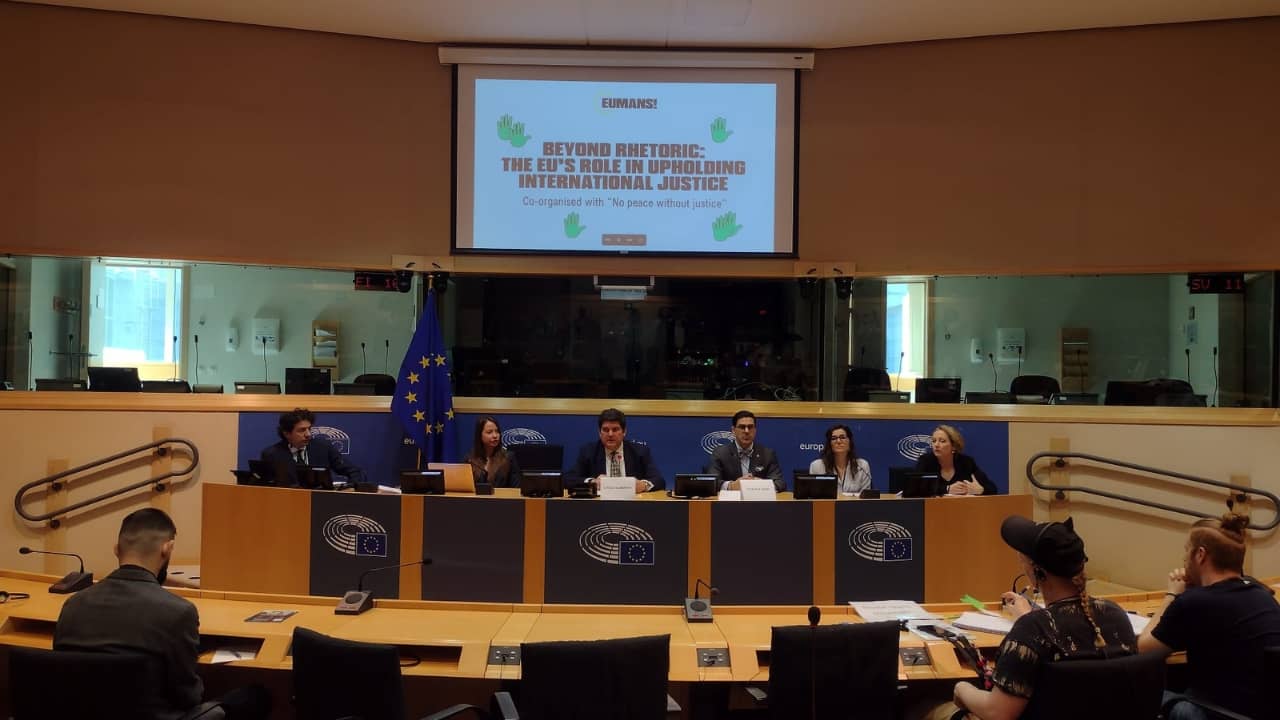
The following article originally appeared on radio free asia on September 28, 2017.
Interview: 'Without Justice There Can’t Be Peace' in Cambodia
Zakariya Tin conducted a phone interview on Wednesday with Son Chhay, Cambodia National Rescue Party chief whip and lawmaker on the country’s ongoing political tensions following Prime Minister Hun Sen’s broad crackdown on the opposition CNRP and civil society and media.
RFA: The Constitutional Council has summarized its work output over the past 24 years in regard to the implementation of the Constitution, saying that the government properly upholds the Constitution and that almost 300 statutes along with various international legal instruments have been adopted and endorsed. As a lawmaker, has our present Constitution been upheld properly?
Son Chhay: My observation is different from what the Constitutional Council has claimed. As we know, our constitution has been amended a couple of times. The gravest amendment was the one that paves the way for a package vote in endorsing a new prime minister and leadership of the National Assembly simultaneously. This is one of the events involving changes to the Constitution. In real practice, as we know nowadays there are ongoing debates among legal experts with the royal government in regard to the arrest of lawmakers while they still have immunity. This is the issue concerning our latest practices.
Yet, if we think further, talking about the Constitution, it stipulates about citizens’ rights and freedom, including freedom of information, political participation, and housing rights, etc. -- These rights have not been properly protected. Housing rights and rights to life, for instance, have been violated through acts of land grabbing. As to freedom of expression, many people have also been arrested and jailed. Prior to talking about other human rights, we should also know that our Constitution is based on a pluralistic democracy. The Constitution clearly states about separation of three powers—legislative, executive, and judiciary. If we examine these three pillars, we see that they are being messed up. The National Assembly which is a legislative branch does not enjoy any independence as, mostly, it always follows instructions from the royal government. Likewise, for judiciary system, as we have seen, the court always listen to—especially for politically motivated cases—no matter what the government has said—the courts will follow suit.
Therefore, it is wrong from the top—right from the paramount principles of the Constitution up to the practices of citizens’ rights, the protection of the rights of deputies or lawmakers who represent the people, and various other practices that have been created to ensure that Cambodia has balance of power and guarantee of both resources, rights to life and protection from any violation by any power governing of the country.
RFA: Earlier you mentioned that the three branches have not been clearly separated, in particular the executive branch always exerts its influence on the other two branches. More importantly, it has influence on the paramount institution of the country—the Constitutional Council. What is the main factor causing the executive branch to be able to exert its excessive influence on the other two branches?
Son Chhay: As we know, in principle, the practice of change from the former regime known as a socialist regime, whereby a single party belonged to the state, and multiple parties did not exist, and customs of governing prior to 1993, the state controlled everything. This meant that the same party controlled the government as well as the National Assembly. It is a fact that what had been practiced in the past has remained an influence on the present Constitution. Such practices becomes stronger and stronger due to power of those powerholders. With our weak institutions, leaders in the government always consolidate those powers and centralize them. As a result, it causes other institutions to dare not do anything except follow instructions from the executive branch.
The combination of our past customs and method of consolidation of power in governing the country after 1993 have caused a chaotic situation nowadays. Technically, what our present Constitution states has no longer been implemented, but we turn to follow our past practices as a basis. And that is the issue. Also, those who serve as guarantors of the Constitution are from the members of the same ruling party.
RFA: In Wednesday’s statement from the Constitutional Council, it is stated that Cambodia has a Constitution, and credible legal and judicial systems. Particularly, Cambodia has enjoyed peace and happiness. What are your thoughts about this?
Son Chhay: We must understand clearly what it really means by the term ‘peace’. A peace in a frightening environment or a peace in an environment of freedom and justice? These are two different versions. That is why Cambodia decided in principle since the Paris Peace Agreement that to ensure sustainable peace, we shall uphold a peace with provision of freedom and social justice. As a matter of fact, we must know that as a theory, peace cannot exist without justice.
If we ask our general citizens whether in their real lives, our society has enjoyed justice, be it political justice, economic justice or whatever; and whether there are any restrictions. When our citizens possess plots of land and these plots have been grabbed by the powerful … and yet our judicial system does not protect them. And when politicians from outside the government who appear to face minor problems have been subject to prosecution by judicial system. Moreover, in business, money and individual power always influence on the way we deal with business and trade.
So we must understand clearly the definition of term ‘peace’. If we merely live in fear and just like what we had experienced during the Pol Pot regime, during which time, they also claimed that Cambodia was at peace! Under Pol Pot’s leadership, when they executed any individual, no one dared to challenge as they just kept quiet even if their family members were taken for execution. At that time, there was no battles with the exception of later on that we had battles with the Vietnamese.
Therefore, when there are no citizens protesting or holding demonstration to demand any freedoms or rights. Is such a society at peace? I don’t think so. In a long-term peaceful society in countries that genuinely uphold democracy, institutions have been properly governed and each institution serves their own citizens. Citizens are allowed to participate in the protection of the interests of the nation and their own personal interests with full practice of freedom of expression. These countries have never experienced any kind of war -- no matter how many times they change their government leaders, they still enjoy peace. As we can see in countries in Europe, they change their prime ministers or presidents many times, but we have never heard of their countries being plunged into war or internal disputes. Even in the U.S., with over a hundred of years of peace, they also have never encounter any problems. Their citizens still enjoy freedom. Except in our country when a leader assumes power, they always turn to kill one another and destruction. That is why it plunges the country into trouble. Those claiming that we have peace should clearly understand what these issues really mean. In short, as I said, without justice there can’t be peace.




